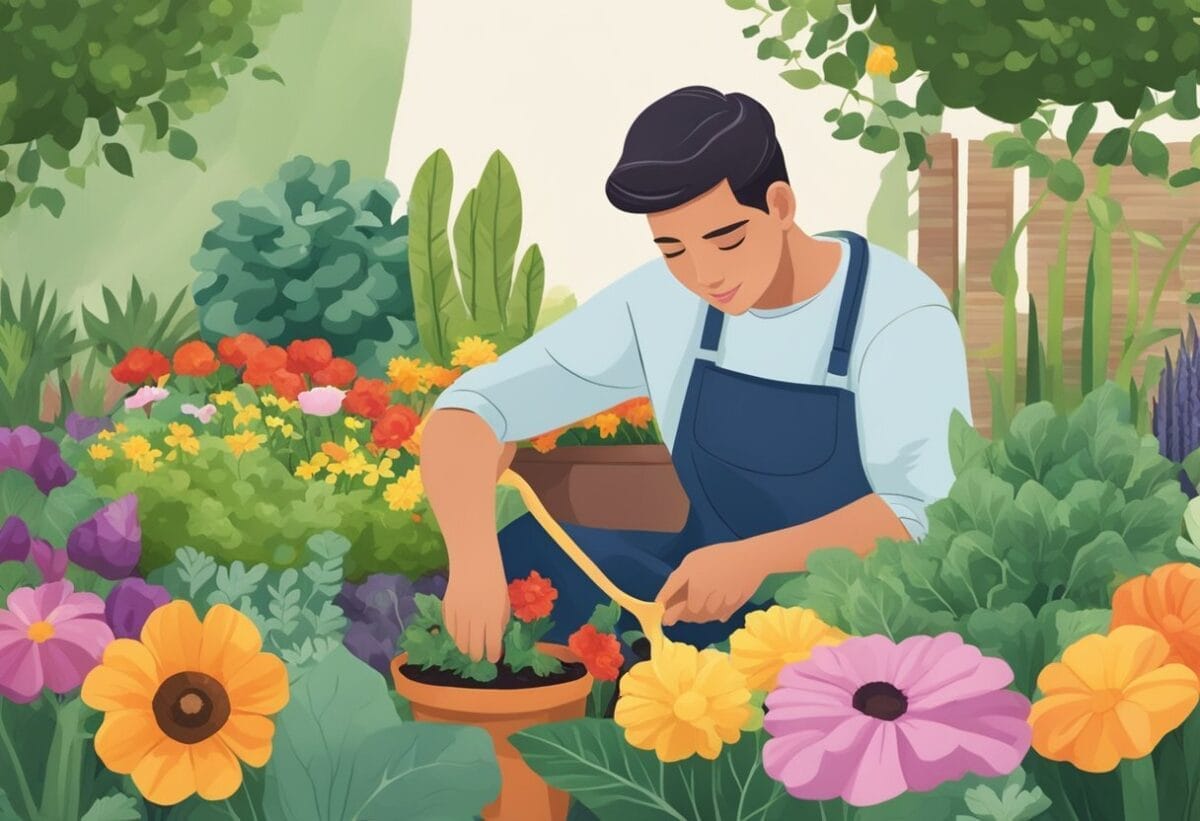When asked about what you do outside of work during a job interview, it’s your chance to shine. This job interview question lets you share your interests beyond work. It gives the interviewer a peek into your personality.
Your answer can show how you’ll fit into the company culture and bring unique skills to the job.
Talking about your hobbies can be fun. It can help you relax during the interview. You might even find common ground with the interviewer. This can make the conversation more enjoyable for both of you.
Key Takeaways
- Your hobbies can show how you’ll fit into the company culture
- Prepare a few relevant interests to discuss in your interview
- Use your answer to highlight skills that relate to the job
Why Do Employers Ask “What Are Your Hobbies Or Interests Outside Of Work?” During An Interview
Employers ask about your hobbies for several reasons. They want to get to know you better as a person. Your interests can reveal a lot about your personality and values. Your interests might align with the job or company culture.
They’re also looking for well-rounded candidates. Having hobbies shows you have a life outside of work. This is important for maintaining a healthy work-life balance.
Employers may use this question to assess your:
- Creativity
- Problem-solving skills
- Time management abilities
- Passion and drive
They’re also checking if you’ll fit in with the team. Shared interests can help build relationships with coworkers.
Your genuine enthusiasm will shine through and impress the interviewer.
This question is a chance for you to stand out. Use it to share interests that make you unique. It’s an opportunity to connect with the interviewer on a personal level.
Common Variations Of “What Are Your Hobbies Or Interests Outside Of Work?”

Interviewers often ask about your hobbies in different ways. Here are some common variations you might hear:
- “What do you like to do for fun?”
- “How do you spend your free time?”
- “What are your passions outside of work?”
- “Tell me about your interests beyond your career.”
These questions aim to learn about your personality and see how you might fit into the company culture.
You might also encounter more specific questions like:
- “Do you have any creative hobbies?”
- “What sports or physical activities do you enjoy?”
- “Are you involved in any volunteer work?”
There’s no “right” answer to this question, but the most relevant answer. The key is to be honest and share hobbies that show positive traits about you.
Some interviewers may ask about interests related to your career. For example:
- “What professional topics interest you outside of work?”
- “Are you passionate about any industry trends?”
Be ready to discuss both personal and professional interests. This helps create a well-rounded picture of who you are as a person and potential employee.
How To Answer “What Do You Do Outside of Work?’

Answering this question well can show your personality and help you stand out. Follow these steps to craft a great response that highlights your interests and strengths.
Step 1: Think About Your Hobbies and Interest
Pick 2-3 that you truly enjoy and can talk about with enthusiasm. Good options include:
- Sports or fitness activities
- Creative pursuits like art, music, or writing
- Volunteering or community service
- Travel and exploring new places
- Reading or learning new skills
Choose hobbies that show positive traits. For example, team sports demonstrate teamwork and leadership. Volunteering shows compassion and social responsibility.
Step 2: Connect your hobbies to job-related skills
Think about how your interests have helped you develop useful abilities. For instance:
- Photography → attention to detail
- Blogging → communication skills
- Hiking → perseverance and goal-setting
- Cooking → creativity and following instructions
Make a list of skills from your hobbies. See how they match the job requirements. This helps you give relevant answers.
Step 3: Give a Brief Description
Prepare a brief description of each hobby. Include:
- What you do
- Why you enjoy it
- How long you’ve been doing it
- Any achievements or fun facts
Keep it concise, about 2-3 sentences per hobby. For example:
“I’ve been playing guitar for 5 years. I love how it helps me relax and express myself creatively. Recently, I performed at a local charity event.”
Practice your descriptions so you can share them naturally. Be ready to expand if the interviewer asks follow-up questions.
Step 4: Start your answer with enthusiasm
Show you’re glad they asked. You might say:
“I’m happy you asked! I have a few interests that I’m really passionate about.”
Then, share your prepared descriptions. Speak clearly and keep eye contact. Your genuine interest should shine through.
As you talk, look for ways to relate your hobbies to the job. For example:
“Rock climbing has taught me a lot about problem-solving and staying calm under pressure. I think these skills would be valuable in this role.”
Step 5: Ask the interviewer if they have an interest as well
End your answer by asking the interviewer about their interests. This shows you’re engaging and interested in others. You could say:
“Those are my main hobbies. Do you have any interests outside of work that you really enjoy?”
This can lead to a nice conversation and help you connect with the interviewer. It also shows you’re confident and good at building relationships.
Keep your answer professional and avoid mentioning hobbies that could be seen as negative or unproductive. Stay positive and show how your interests make you a well-rounded person and a great fit for the job.
Best Example Answers To “What Are Your Hobbies Or Interests Outside Of Work?”

Crafting a strong answer to this question can help you connect with the interviewer and showcase your personality. Your hobbies can highlight valuable skills and traits that make you a great fit for the role.
Example Answer For A Recent Graduate
“I love hiking and nature photography. Every weekend, I explore new trails and capture the beauty around me. This hobby has taught me patience, attention to detail, and creative problem-solving.”
Through hiking, I’ve learned to set goals and push my limits. These skills have helped me in my academic projects and internships.”
“Photography has improved my eye for design, which I believe will be valuable in this marketing role.”
Example Answer For An Experienced Candidate
“Outside of work, I’m passionate about community theater. I’ve been involved in local productions for the past five years.”
“This hobby has sharpened my public speaking and teamwork skills. It’s also taught me how to manage stress and think on my feet.”
“These abilities have proven invaluable in my professional life, especially when giving presentations or collaborating on tight deadlines.”
Example Answer For Applying For A Leadership Position
“I mentor high school students in my free time. This experience has been incredibly rewarding and has honed my leadership skills.”
“Guiding these young minds has taught me patience, active listening, and how to provide constructive feedback.”
“I’ve learned to adapt my communication style to different personalities, which I believe is crucial for effective leadership.”
“This volunteer work has also reinforced my commitment to continuous learning and personal growth.”
Example Answer For An Industry Change
“I run a food blog where I share recipes and restaurant reviews. This hobby has given me valuable insights into the food industry.”
“Managing my blog has taught me about social media marketing, content creation, and SEO – skills that align well with this digital marketing position.”
“I’ve also developed a keen eye for food presentation and photography, which I believe will be beneficial in creating appealing content for your brand.”
Example Answer For A Career Change
“I’m an avid coder in my spare time. I’ve been learning Python and JavaScript through online courses and personal projects.”
“This hobby has sparked my passion for technology and problem-solving, which led me to pursue this career change into software development.”
“I’ve built several small applications, including a budget tracker and a recipe organizer. These projects have taught me perseverance and the importance of user-centered design.”
“I’m excited to bring this self-taught knowledge and enthusiasm to a professional setting.”
Join over 11,000+ achievers who are committed to achieving their career goals!


![Top 100 Job Interview Questions and Answers Sample [Full List] 5 List of Top Job Interview Questions and Answers With Samples](https://hqhire.com/wp-content/uploads/2024/11/Common-and-Tricky-Interview-Questions-31.jpg)



![How Far is Too Far? Reasonable Commute Time and Distance to Work [2025] 9 Commuting to Work](https://hqhire.com/wp-content/uploads/2022/01/Commuting-to-Work-768x402.jpg)